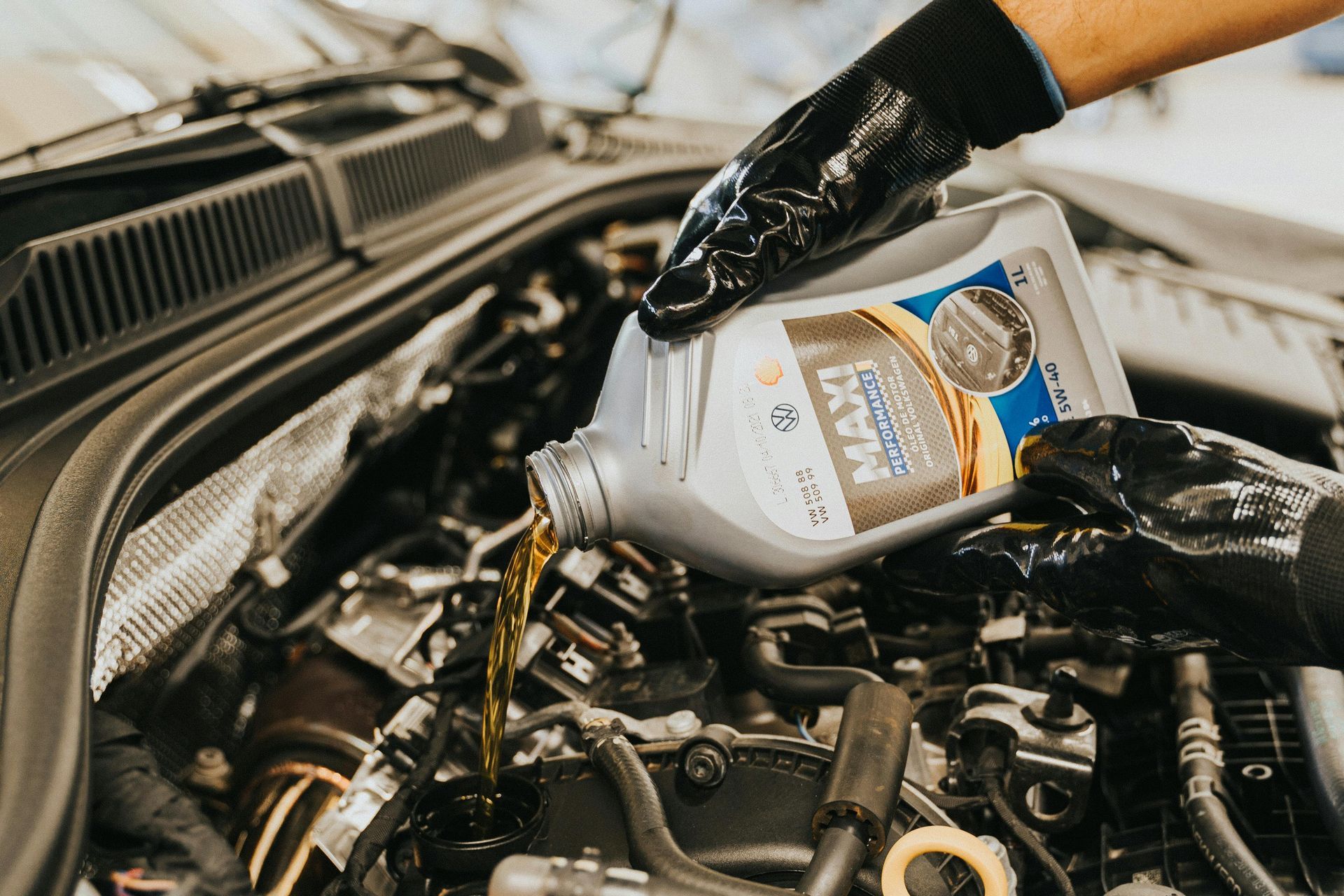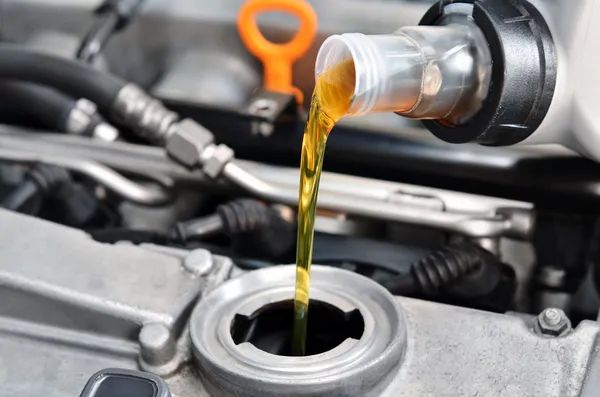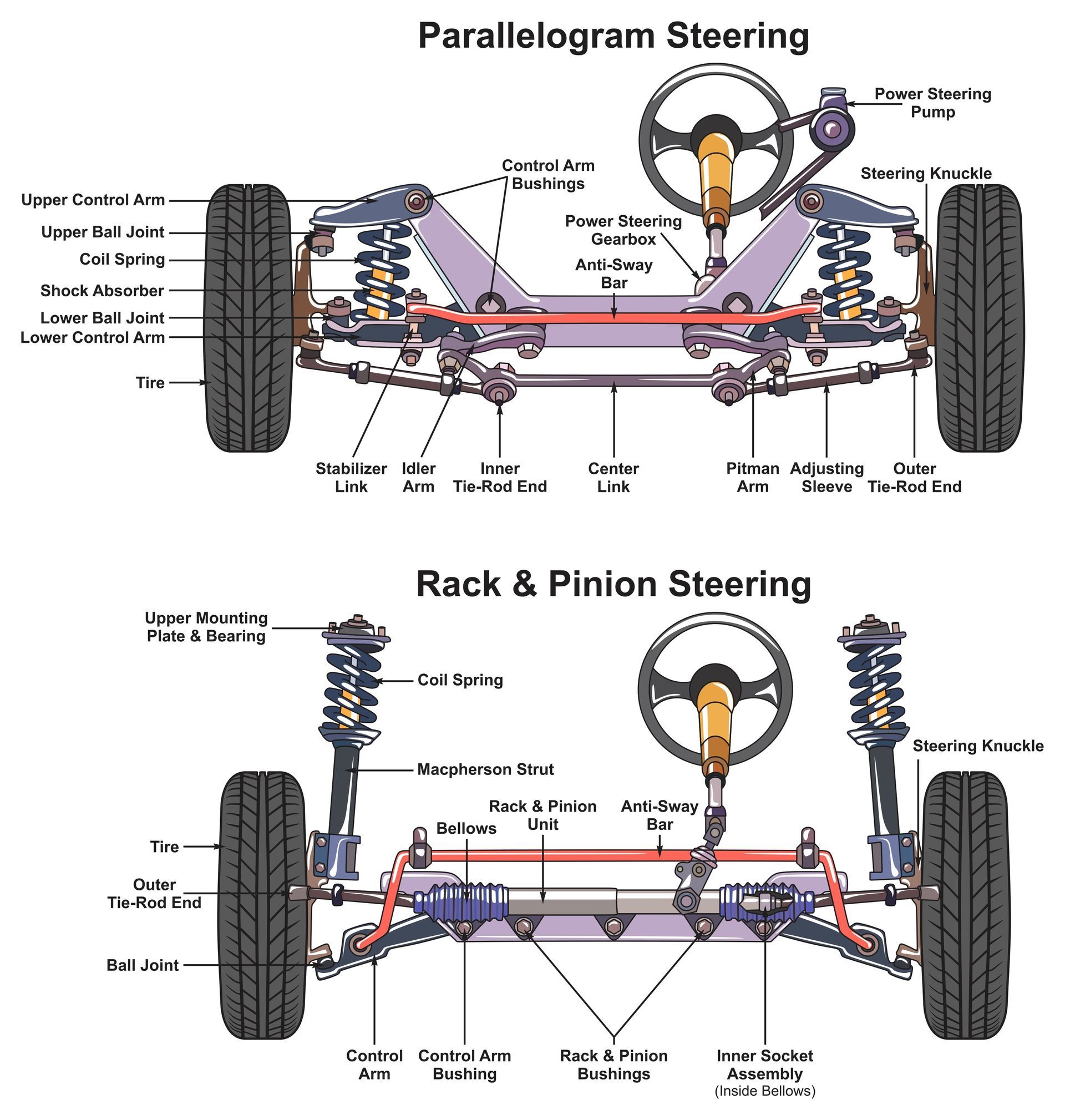When it comes to maintaining your vehicle, one of the most critical yet often overlooked aspects is the type of oil you use. For many drivers, the thought of oil changes might conjure images of quick lube shops and routine maintenance, but the reality is far more complex.
The oil you choose can significantly impact your engine's performance, longevity, and overall efficiency.

However, the type of oil used is not just a trivial detail. From conventional oil to synthetic blends, the choices can be overwhelming.
Each type has its unique properties, benefits, and drawbacks. In this blog, we will explore why the type of oil you use is crucial, what to consider when choosing oil for your vehicle, and how it can affect your
oil change services.
The Role of Motor Oil
To understand why the type of oil is important, let’s look at what motor oil does for your engine:
- Lubrication: Motor oil reduces friction between moving parts, which helps prevent wear and tear. The smoother the surfaces can move against each other, the less energy is required, leading to improved fuel efficiency.
- Cooling: Oil absorbs heat from the engine components and helps dissipate it, keeping your engine within its optimal temperature range. This is especially important in high-performance or heavy-duty applications.
- Cleaning: Motor oil contains additives that help clean engine components by suspending dirt, debris, and contaminants. This prevents the buildup of sludge and keeps the engine running smoothly.
- Sealing: Oil helps create a seal between the piston rings and cylinder walls, which improves compression and overall engine performance.
- Corrosion Protection: The right oil can help protect engine parts from rust and corrosion, extending the life of your vehicle.
Types of Motor Oil
When considering oil change services, the type of oil you choose can make a significant difference in your vehicle's health. Here are the main types of motor oil available:
1. Conventional Oil
Conventional oil is derived from crude oil and is the most basic type of motor oil. It provides adequate lubrication for many standard driving conditions. However, it may not perform as well in extreme temperatures or under heavy loads.
Pros: Cost-effective and suitable for older engines or vehicles with less demanding requirements.
Cons: Requires more frequent changes, offers less protection against high temperatures, and may break down faster than synthetic oils.
2. Synthetic Oil
Synthetic oil is engineered from chemical compounds and is designed to provide superior performance compared to conventional oil. It offers better lubrication, high-temperature stability, and resistance to breakdown.
Pros: Improved engine protection, better fuel efficiency, and longer intervals between oil changes.
Cons: Generally more expensive than conventional oil, though the extended change intervals can offset the cost.
3. Synthetic Blend Oil
Synthetic blend oil combines conventional and synthetic oils, offering a compromise between performance and price. It provides some of the benefits of synthetic oil while maintaining a lower cost.
Pros: Better protection than conventional oil without the full price of synthetic oil; good for drivers who want enhanced performance without a significant investment.
Cons: Still not as robust as full synthetic oil in extreme conditions.
4. High-Mileage Oil
High-mileage oil is specially formulated for vehicles with over 75,000 miles. It contains additives that help condition engine seals and reduce oil consumption, helping to prolong the life of older engines.
Pros: Helps reduce leaks and consumption, and provides added protection for aging engines.
Cons: May not be necessary for all vehicles; best suited for those with higher mileage.
Why the Type of Oil Matters
Choosing the right oil type can significantly affect your vehicle's performance, efficiency, and longevity. Here are some reasons why it’s essential to consider the type of oil you use:
1. Engine Health and Longevity
Using the appropriate oil for your vehicle can help reduce wear and tear on engine components. Over time, the right oil can extend the life of your engine, potentially saving you from costly repairs or replacements.
2. Fuel Efficiency
Different oil types can affect your vehicle's fuel efficiency. Synthetic oils, for instance, tend to provide better lubrication, which can lead to improved fuel economy. A well-lubricated engine runs more efficiently, allowing you to get more miles out of every gallon.
3. Performance Under Extreme Conditions
If you frequently drive in extreme temperatures or under heavy loads, the type of oil you choose becomes even more critical. Synthetic oils are particularly well-suited for high-performance vehicles and harsh conditions, providing better protection against thermal breakdown.
4. Warranty Requirements
Many vehicle manufacturers specify the type of oil required for warranty coverage. Using the recommended oil type is essential to maintain your warranty and ensure that any necessary repairs are covered.
5. Environmental Impact
Synthetic oils often produce fewer emissions and last longer between changes, which can be beneficial for the environment. Choosing the right oil can help reduce your carbon footprint while ensuring your vehicle runs efficiently.
Factors to Consider When Choosing Oil
When selecting the right oil for your vehicle, consider the following factors:
Manufacturer Recommendations
Always refer to your owner's manual for the manufacturer's oil specifications. This will provide details on the recommended oil type, viscosity, and any specific standards (such as API or ILSAC ratings).
Driving Conditions
Consider your driving habits and conditions. If you frequently drive in stop-and-go traffic, tow heavy loads, or operate in extreme temperatures, you may need a higher-quality oil, such as synthetic.
Vehicle Age and Mileage
Older vehicles may benefit from high-mileage oils, which contain additives to help protect aging engines. Newer vehicles may require synthetic or synthetic blend oils for optimal performance.
Budget
While synthetic oils can be more expensive upfront, consider the long-term benefits of extended change intervals and improved mileage. Sometimes, spending a bit more initially can save you money in the long run.
Oil Change Services
Regular oil change services are crucial for maintaining your vehicle's health. Whether you choose conventional or synthetic oil, staying on top of your oil change schedule will help ensure your engine remains in good condition.
How to Properly Change Your Oil
If you decide to change your oil yourself, it’s essential to follow the correct procedure to ensure everything is done safely and effectively:
Gather Your Supplies: You'll need the right type and amount of oil, a new oil filter, an oil pan, a wrench, and a funnel.
Warm Up Your Engine: Running your engine for a few minutes warms the oil, making it easier to drain.
Drain the Old Oil: Place the oil pan under the oil pan and remove the drain plug. Allow the old oil to completely drain out.
Replace the Oil Filter: Use an oil filter wrench to remove the old filter. Before installing the new one, apply a little new oil to the rubber seal of the new filter.
Add New Oil: Replace the drain plug and use a funnel to pour in the new oil. Check your owner's manual for the correct oil capacity.
Dispose of Old Oil Properly: Take the used oil to a recycling center or a service station that accepts used oil.
Check Oil Level: After adding oil, wait a few minutes and then check the dipstick to ensure the oil level is correct.
When to Seek Professional Oil Change Services
While changing your oil at home can be satisfying and cost-effective, there are times when you should seek professional help for your oil change services.
Lack of Time or Tools: If you don’t have the time or proper tools, a professional service can save you the hassle.
Uncertainty About Oil Types: If you’re unsure about which oil is best for your vehicle, a professional can guide you through the options.
Additional Services Needed: Sometimes, an oil change is an opportunity for a thorough inspection or additional services that a professional can provide.
The Benefits of Regular Oil Change Services
Regular oil change services are essential for maintaining your vehicle's health. Here are some of the key benefits:
Prevents Engine Damage:
Regular oil changes help prevent the buildup of sludge, which can lead to severe engine damage over time.
Improves Fuel Economy:
Clean oil can improve your vehicle's fuel efficiency, saving you money at the pump.
Enhances Performance:
A well-maintained engine runs smoother and more efficiently, providing a better driving experience.
Extends Engine Life:
Regular maintenance, including oil changes, can significantly extend the life of your engine.
Peace of Mind:
Knowing your vehicle is in good condition can provide peace of mind, especially when embarking on long trips.
Trust Elite Auto Experts For Oil Change Services
Choosing the right type of oil for your vehicle is more than just a routine task; it’s a critical aspect of maintaining your engine's health and performance. By understanding the different types of oil available and their respective benefits, you can make informed decisions that will extend the life of your vehicle.
At
Elite Auto Experts, we provide comprehensive oil change services tailored to your vehicle's unique needs.
Our trained technicians are knowledgeable about various oil types and can help you select the best option for your driving habits and conditions. Whether you prefer conventional, synthetic, or high-mileage oils, we ensure your vehicle receives the best care possible.
Additionally, we provide a range of other services, including transmission repair, auto electrical repairs, and other services. Whether you're experiencing shifting issues or electrical problems, our team is equipped to handle it all.
Contact Elite Auto Experts today
to schedule your next oil change service and keep your engine running smoothly for miles to come!










